13 Popular Herbs That Attract Beneficial Insects To The Garden
Growing herbs in your garden does more than just enhance your meals; many herbs can attract beneficial insects that help create a healthier, more balanced ecosystem. These insects play a vital role in pollination, natural pest control, and supporting plant health. By incorporating the right herbs, you can encourage the presence of bees, ladybugs, and other helpful insects that contribute to a thriving garden. Whether you’re a seasoned gardener or just starting, adding these herbs can make a big difference in the health and productivity of your garden.
This post may contain affiliate links, which helps keep this content free. Please read our disclosure for more info.
Basil
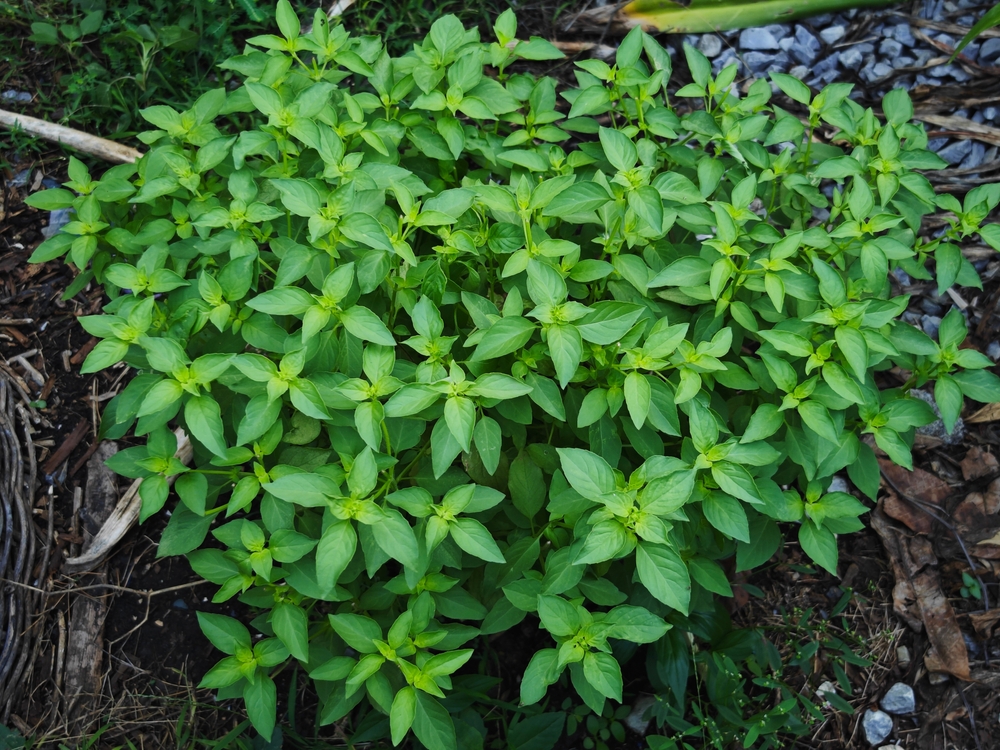
Basil is an herb that does wonders for both your garden and kitchen. Its fragrant leaves attract bees and other pollinators, which are essential for the reproduction of many plants. These pollinators help increase crop yields by ensuring that flowers are properly fertilized. Additionally, basil’s strong scent is known to deter certain pests, such as mosquitoes and flies, but it also attracts beneficial insects like ladybugs and hoverflies. These insects are natural predators of aphids and other harmful pests, making basil an all-around asset for a garden ecosystem.
Not only does basil enhance the pollination process, but it also plays a role in pest control, helping to keep the garden’s environment balanced. By growing basil near other plants, you can create a natural sanctuary for beneficial insects while enhancing the flavor of your dishes. Whether planted in containers or directly in the soil, basil is a must-have for gardeners looking to create a healthier, more vibrant garden.
Mint
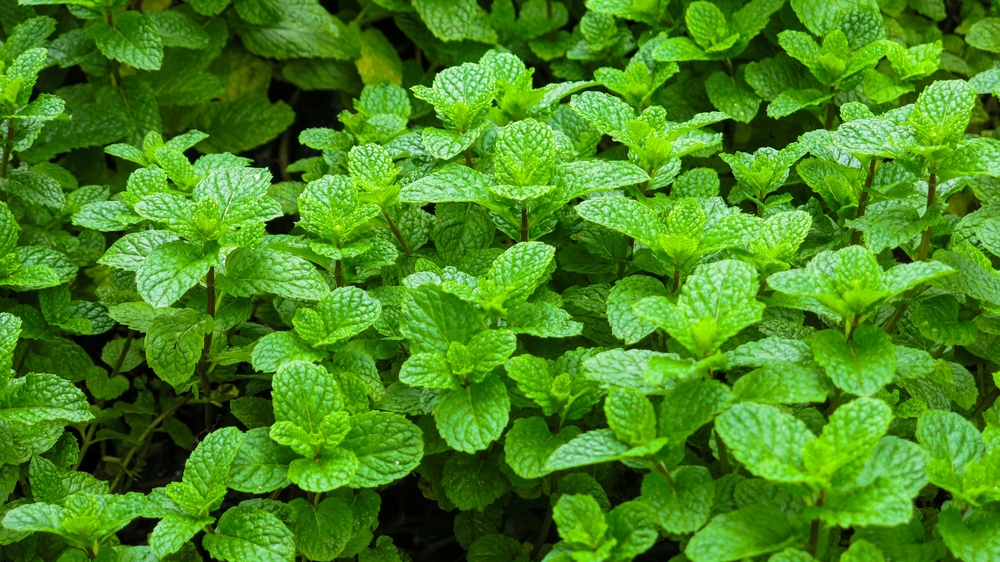
Mint is an aromatic herb that offers numerous benefits to your garden ecosystem. Its strong, sweet fragrance is attractive to pollinators like bees, which are crucial for the fertilization of many plants. However, mint’s role in the garden goes beyond pollination. Its scent also draws in predatory insects such as ladybugs and parasitic wasps, both of which help control pest populations by feeding on aphids, caterpillars, and other harmful insects. These insects help maintain the balance of your garden’s ecosystem and reduce the need for chemical pesticides.
While mint can be invasive if left unchecked, it can be grown in containers to control its spread. When strategically placed in your garden, mint becomes a natural insect-repelling powerhouse. It also creates a welcoming environment for a variety of other beneficial insects that can further improve the health of your garden by helping with pest management and supporting pollination.
Dill
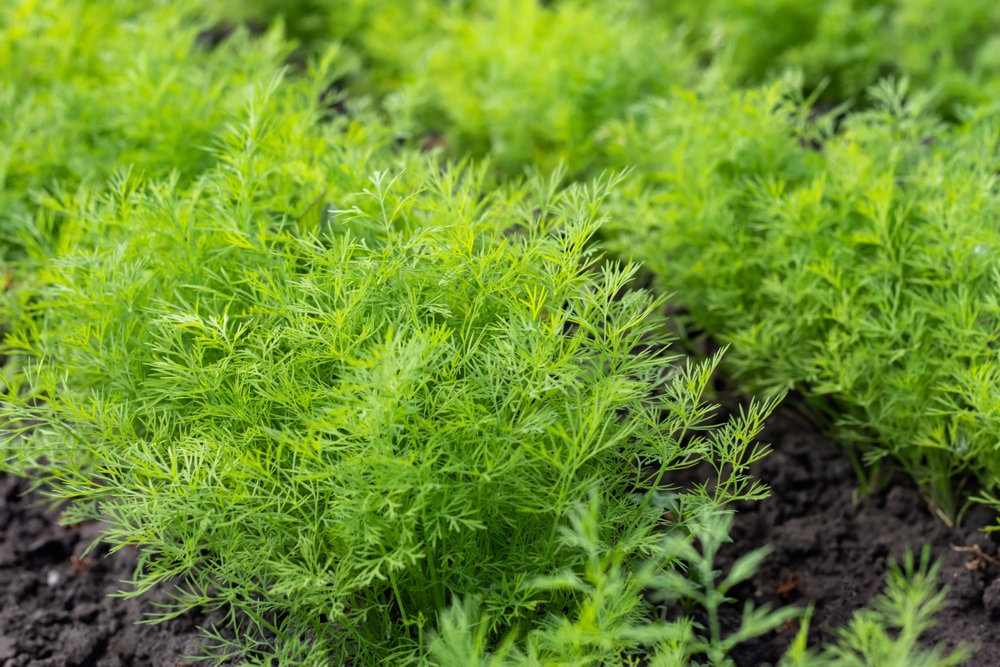
Dill is a delightful herb with a dual purpose in the garden: it attracts pollinators and helps keep pests under control. The herb’s delicate, umbrella-shaped flowers are particularly appealing to bees and other beneficial insects, which seek out its nectar. As these insects pollinate dill and nearby plants, they contribute to a more productive garden. Furthermore, dill is a favorite of beneficial predatory insects, such as ladybugs, lacewings, and hoverflies. These creatures feed on aphids, caterpillars, and other pests, preventing them from damaging your plants.
Beyond attracting pollinators and predators, dill also provides habitat and food for beneficial insects. Its tall, feathery foliage offers shelter for these insects, creating a micro-ecosystem within your garden. Dill is an easy-to-grow herb that not only enhances the health of your garden but also adds fresh flavor to your meals.
Chives
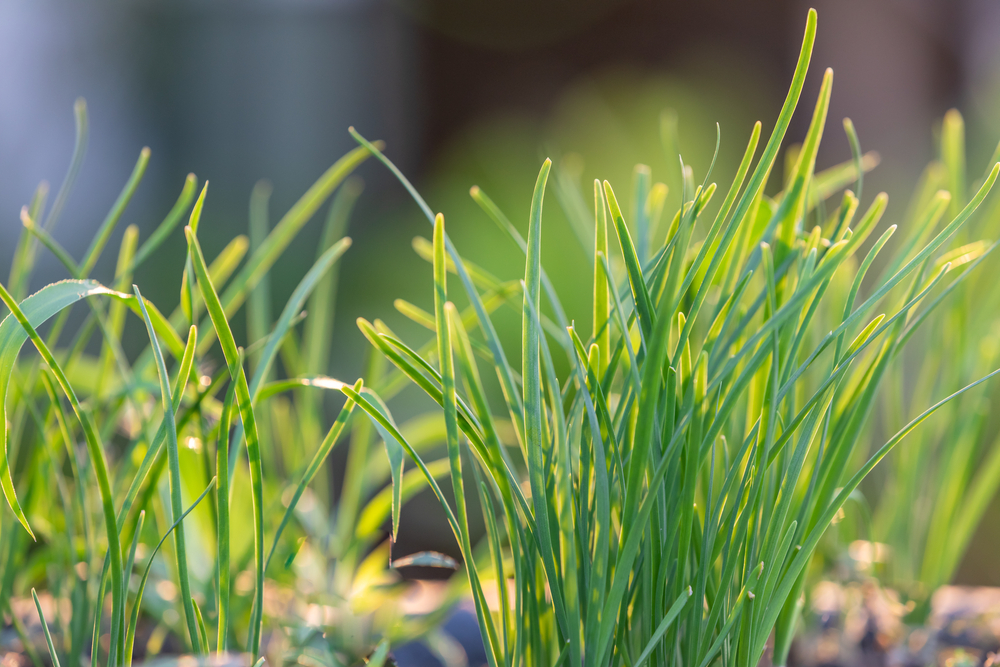
Chives are a versatile herb that provides both culinary and ecological benefits. Their attractive purple flowers are a magnet for bees, butterflies, and other pollinators, which play a key role in fertilizing plants and supporting overall garden health. Chives also work well as a natural pest deterrent due to their mild onion scent. Aphids and other pests are often kept at bay by this fragrance, which helps keep your plants healthier and more productive.
In addition to drawing in pollinators, chives provide food and shelter for beneficial insects such as hoverflies. These flies are important predators of aphids and other harmful pests. By growing chives alongside other plants, you create a habitat where beneficial insects can thrive, contributing to a well-balanced and sustainable garden ecosystem.
Thyme
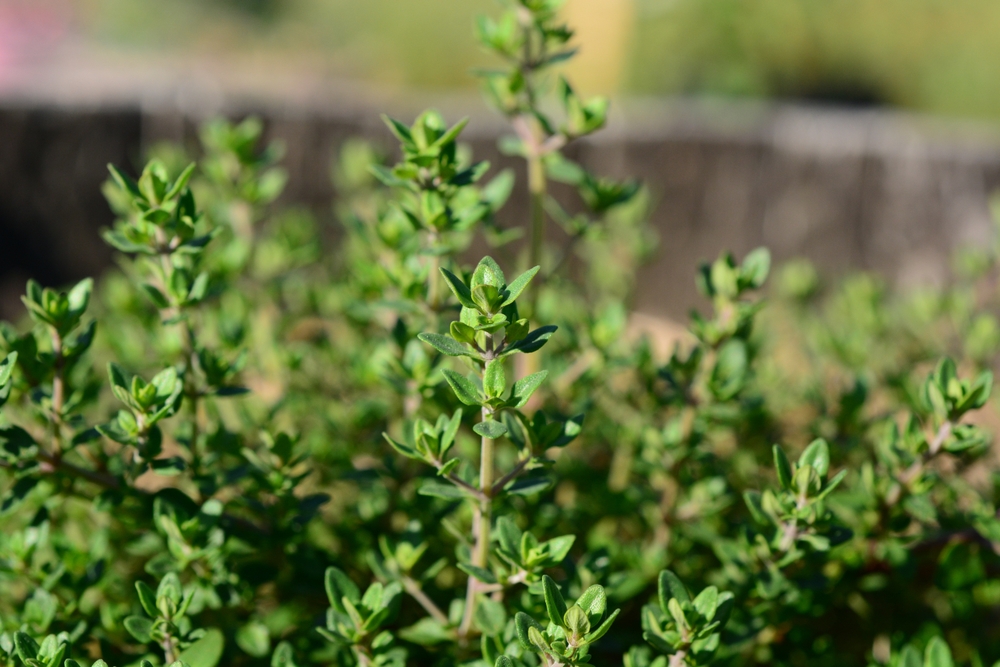
Thyme is an herb that offers more than just flavor for your dishes; it also enhances your garden’s health. Its small, purple flowers attract a wide range of pollinators, including bees and butterflies. These insects help pollinate not just thyme but also nearby plants, increasing the overall productivity of your garden. Thyme is also a favorite of predatory insects like spiders, which help keep pest populations in check. By introducing thyme into your garden, you encourage natural pest control through the presence of these helpful predators.
Thyme’s low-growing habit makes it an excellent ground cover that can help reduce weed growth while providing a safe space for beneficial insects. Its strong aroma can deter pests, while its flowers support a variety of insects that are crucial to the health of your garden. By planting thyme, you create a balanced ecosystem that supports pollination and natural pest control.
Cilantro
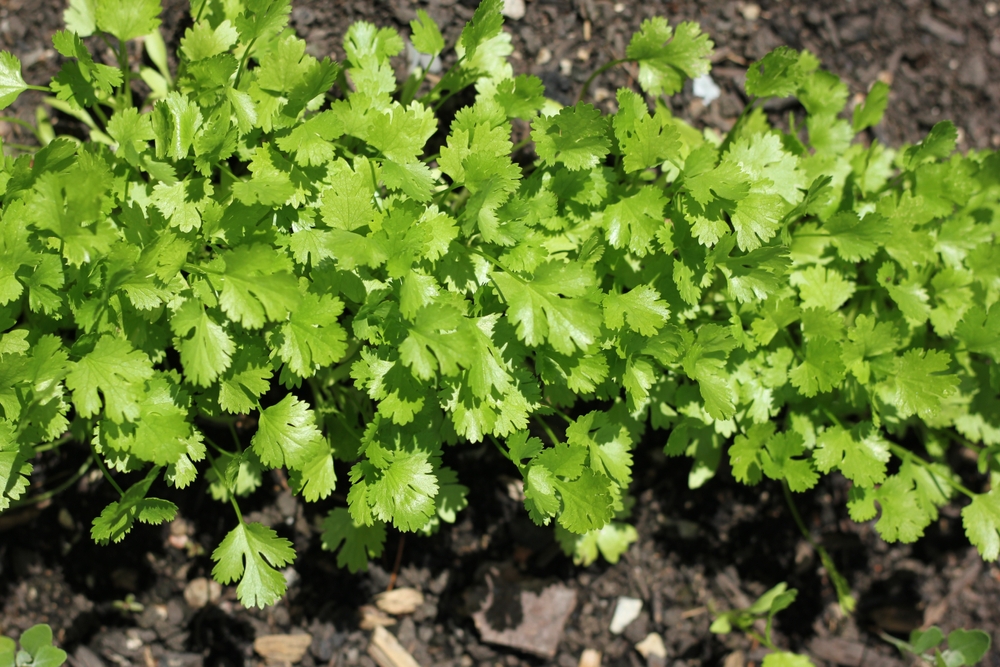
Cilantro is a fast-growing herb that draws beneficial insects with its small white flowers. The herb’s flowers attract bees, butterflies, and other pollinators, helping to fertilize your plants and enhance crop yields. Cilantro also invites parasitic wasps and hoverflies, both of which prey on harmful pests such as aphids, caterpillars, and whiteflies. These beneficial insects help keep your garden healthy by preventing pest outbreaks that can damage your plants.
In addition to its role in attracting insects, cilantro is a useful herb for companion planting. When planted alongside vegetables and other herbs, cilantro helps to support a diverse ecosystem. It can be especially beneficial for vegetable gardens, as the presence of these pollinators and natural predators reduces the need for harmful chemicals, promoting a healthier and more sustainable growing environment.
Fennel
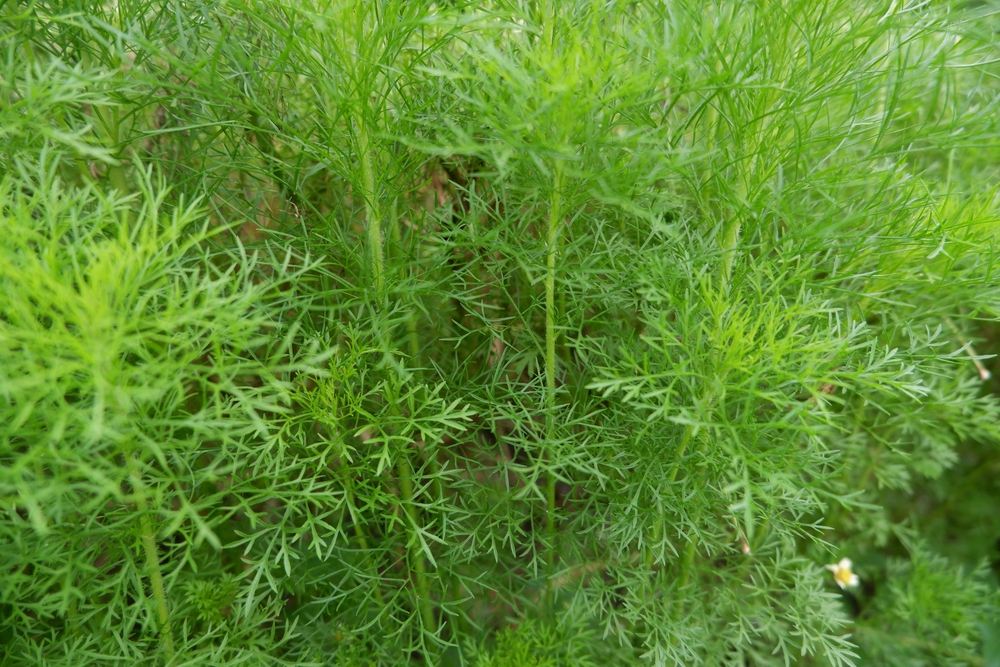
Fennel is a tall, aromatic herb that attracts a wide variety of beneficial insects to the garden. Its feathery foliage and umbrella-shaped flowers are particularly appealing to pollinators like bees, which help increase the productivity of nearby plants. Fennel also draws in parasitic wasps and hoverflies, which help to control pest populations. These predators target common garden pests like aphids, caterpillars, and thrips, reducing the damage caused by these insects.
The presence of fennel in your garden creates an environment where beneficial insects can thrive. Its pollen and nectar provide sustenance for a wide range of insect species, making it an excellent addition to a garden designed for biodiversity. By supporting pollination and pest control, fennel plays an important role in maintaining a healthy, balanced garden ecosystem.
Lavender
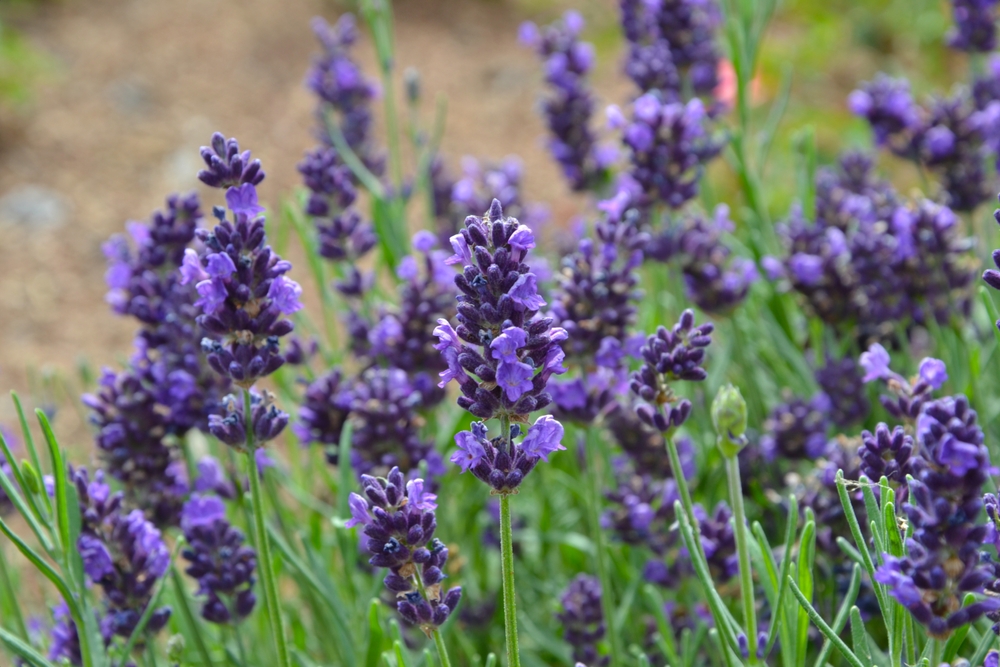
Lavender is well-known for its fragrant flowers and beautiful appearance, but it also attracts a wide range of beneficial insects. Bees and butterflies flock to lavender for its nectar, aiding in the pollination of other plants in the garden. Additionally, lavender’s strong scent repels many pests, such as mosquitoes, moths, and flies, but it still attracts helpful predators like ladybugs and lacewings. These insects feed on aphids, spider mites, and other harmful pests, promoting natural pest control.
Lavender also works as a habitat for many insects, offering shelter for pollinators and natural predators. It is easy to grow and thrives in well-drained soil, making it an excellent choice for gardeners looking to promote a healthy ecosystem. Lavender’s combination of pest-repelling qualities and its ability to attract beneficial insects makes it a must-have herb in any garden.
Oregano
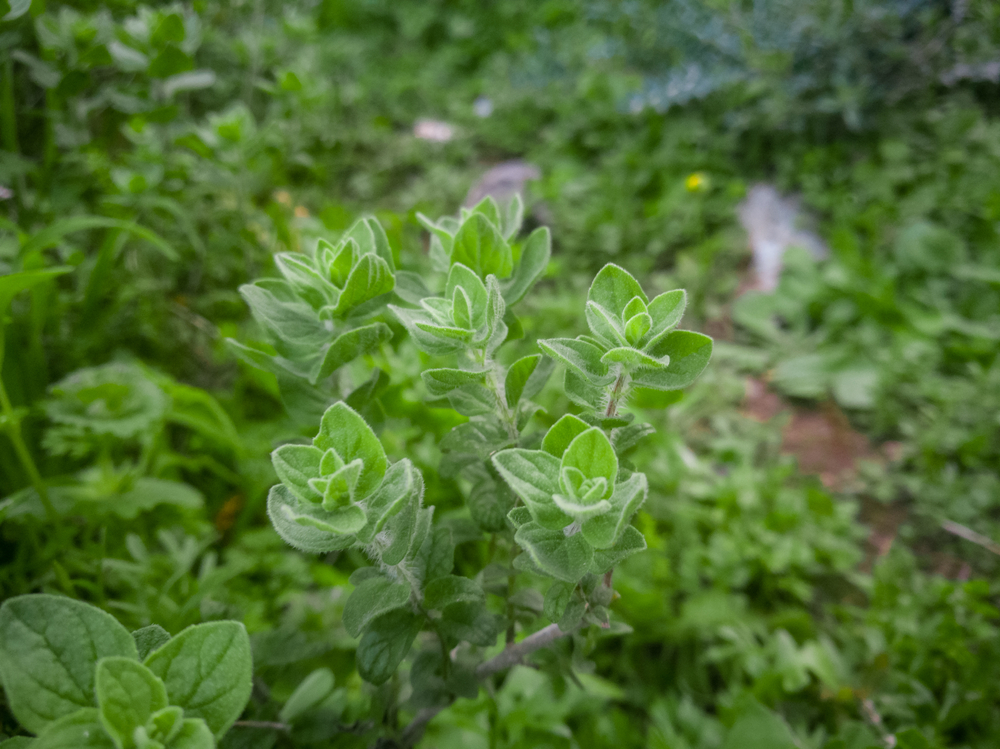
Oregano is a fragrant herb that supports a wide variety of beneficial insects. Its small flowers attract bees, which are crucial for pollination, ensuring that your plants and crops are fertilized. Oregano also draws in predatory insects such as ladybugs and lacewings, which feast on aphids and other harmful pests. By keeping these pest populations under control, oregano contributes to a healthier, more balanced garden ecosystem.
In addition to attracting beneficial insects, oregano is an easy herb to grow in a variety of garden settings. It is drought-tolerant and thrives in full sun, making it an ideal companion for other plants in your garden. By adding oregano to your garden, you help support pollinators and create a natural environment that reduces the need for chemical pesticides.
Rosemary
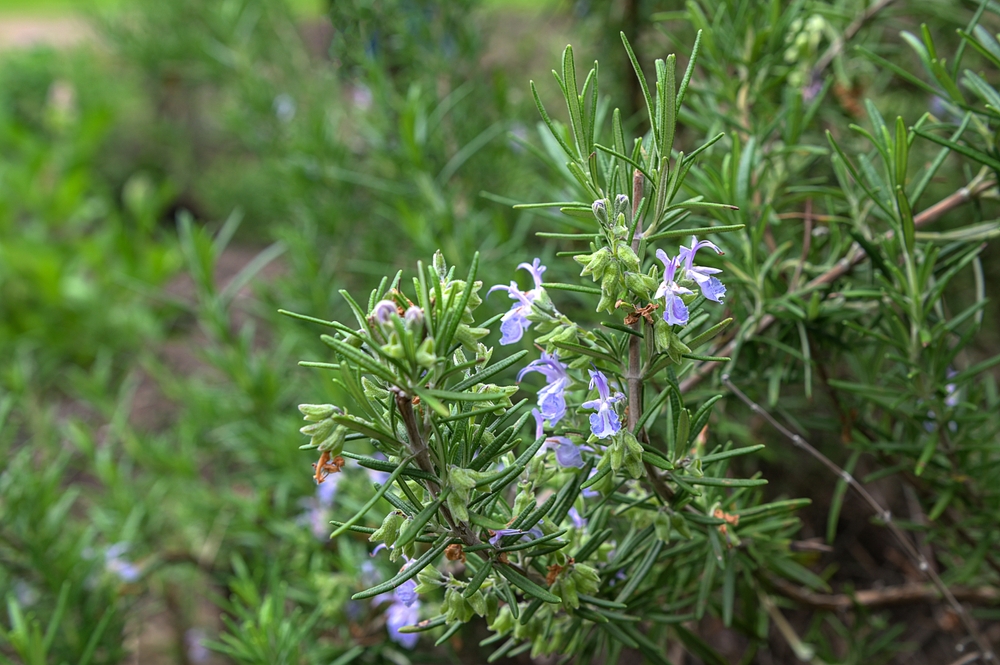
Rosemary is a versatile herb that offers many benefits to the garden. Its fragrant leaves and beautiful blue flowers attract pollinators like bees and butterflies, which are essential for fertilizing plants. Rosemary’s strong scent also deters many pests, including mosquitoes, flies, and cabbage moths, while still attracting beneficial insects like predatory wasps. These wasps are important in controlling pest populations, as they lay their eggs on harmful insects, keeping them in check.
In addition to its role in pest control and pollination, rosemary can be used as a natural hedge or ground cover. It thrives in dry, well-drained soil and can handle full sun, making it a great addition to a low-maintenance garden. Rosemary’s ability to attract beneficial insects and repel pests makes it an invaluable herb for creating a healthier, more sustainable garden ecosystem.
Chervil
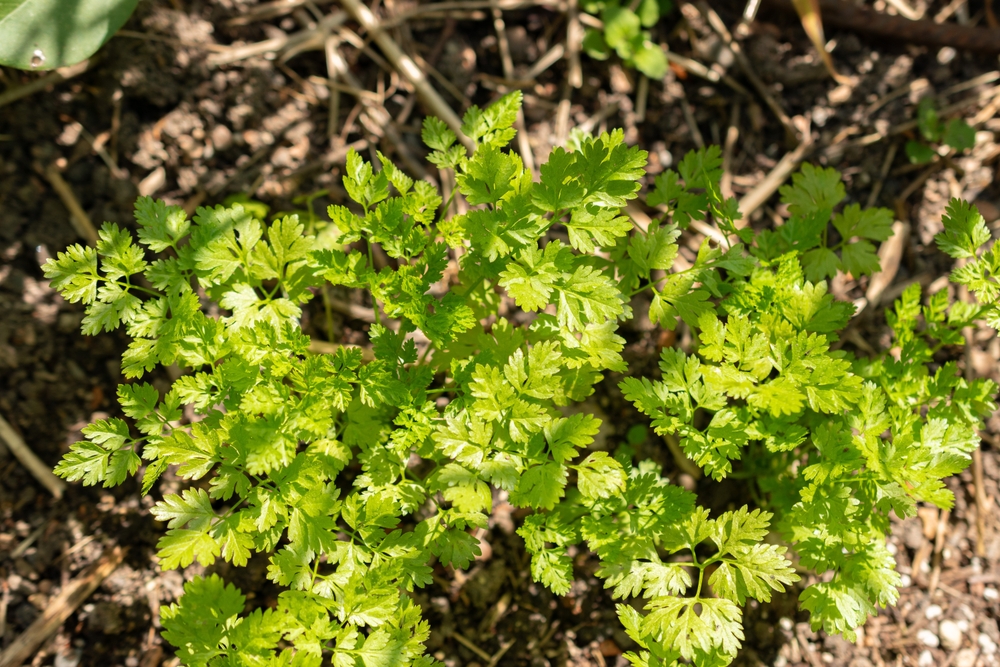
Chervil is an herb often overlooked by gardeners, but it plays a vital role in attracting beneficial insects. Its delicate white flowers are particularly appealing to bees, which help with pollination. Chervil also attracts beneficial predators such as hoverflies and parasitic wasps. These insects help control pest populations by preying on aphids, caterpillars, and other garden pests.
Chervil is an excellent herb for companion planting, as it grows well in partial shade and cool climates. It can be planted near vegetables or other herbs to enhance biodiversity and support natural pest control. By attracting pollinators and predators, chervil helps create a well-balanced and healthy garden ecosystem.
Feverfew
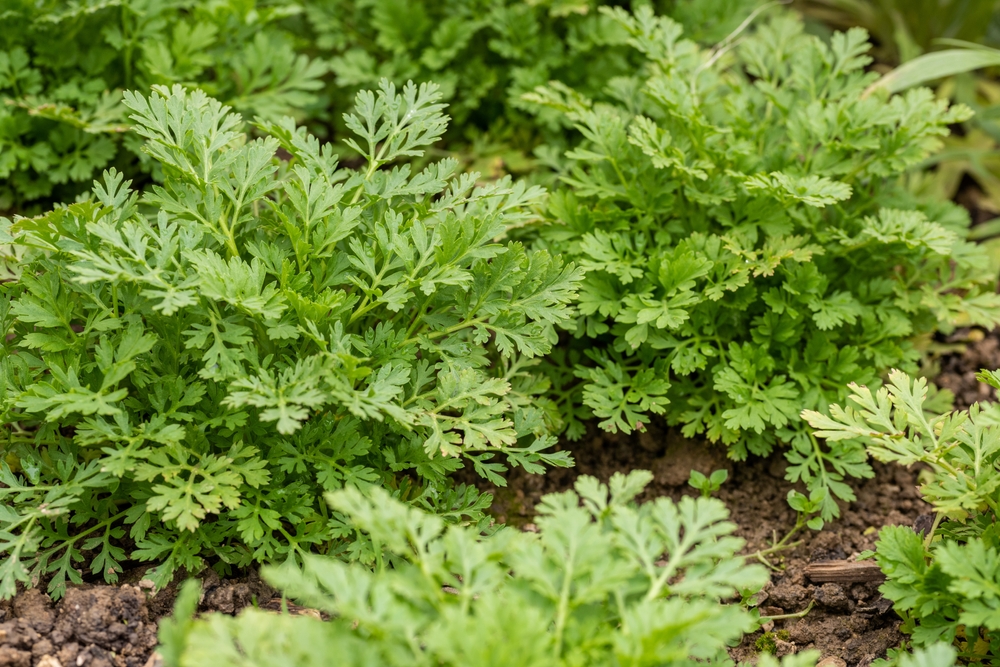
Feverfew is a medicinal herb that also has benefits for garden ecosystems. Its small, white, and yellow flowers are attractive to pollinators like bees, which help increase the number of fruits and seeds in your garden. Feverfew also attracts beneficial insects such as ladybugs, which feed on aphids, and hoverflies, which target other garden pests. By encouraging the presence of these beneficial insects, feverfew helps maintain a healthier garden.
Beyond its role in attracting pollinators and predators, feverfew is known for its pest-repelling qualities. It can help deter pests like mosquitoes and flies, making it a great herb for keeping harmful insects at bay. Feverfew is easy to grow and thrives in well-drained soil, making it an excellent addition to any garden looking to support a healthy ecosystem.
Lemon Balm
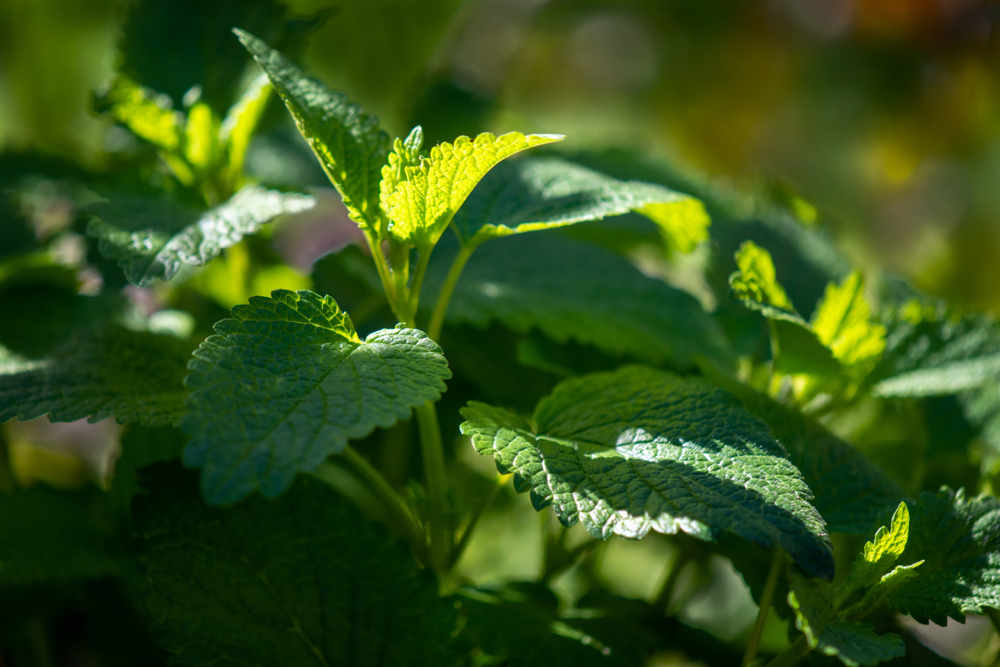
Lemon balm is a refreshing herb with a lemony scent that attracts pollinators, such as bees and butterflies. These insects are vital for fertilizing plants and supporting crop production. Lemon balm also draws in beneficial predators like ladybugs, which prey on aphids and other pests. Its fragrant foliage can help repel mosquitoes and other insects while still providing a habitat for beneficial creatures.
Lemon balm is an easy-to-grow herb that thrives in moist, well-drained soil and can handle partial shade. It spreads quickly, so it is best grown in containers to prevent it from overtaking the garden. Its ability to attract beneficial insects while keeping harmful pests in check makes it a great addition to any garden.
This article originally appeared on Avocadu.
